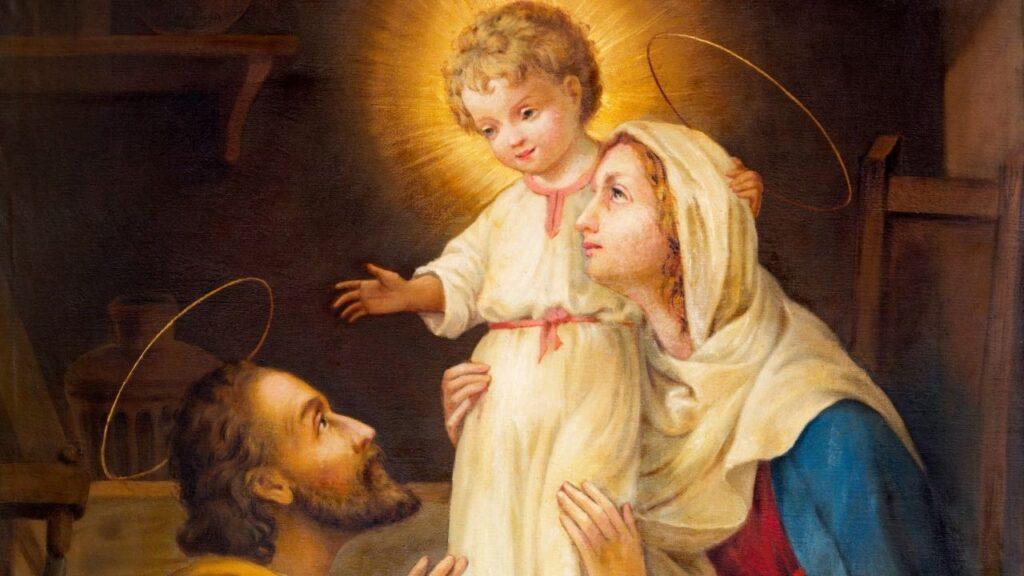A Father’s prayer – 1
Father,
I thank you for the gift of my family
for whom I now pray
and upon whom I now ask you
to shower your blessings.
With St. Joseph as my guide,
may I always be ready
to spend my life for them. Amen.
A Father’s prayer – 2
Lord, bless my wife whom you have given to me as my spouse,
sharing in your wondrous work of creation.
May I see her as my equal
and treat her with the love of Christ for his Church.
May Mary be her guide
and help her to find your peace and your grace. Amen.
A Father’s prayer – 3
Sweet Lord, bless my children with your life and presence.
May the example of your son
be the foundation upon which
their lives are built,
that the Gospel may always
be their hope and support. Amen.
A Father’s prayer – 4
Father, protect and bless my family.
Watch over it so that in the strength of your love
its members may enjoy prosperity,
possess the gift of your peace and,
as the Church alive in this home,
always bear witness to your glory in the world. Amen.
Disclaimer: This prayer is provided for Catholic devotional use based on Church tradition. For official Church teaching, consult the Catechism and magisterial documents. For personal spiritual guidance, consult your parish priest or spiritual director. Questions? Contact hello@powerfulcatholicprayers.com
Support us on PayPal or Patreon. God bless! 💖🙏

As an Amazon Associate, I earn from qualifying purchases. Thank you.
The Early Church Was the Catholic Church
The Case for Catholicism - Answers to Classic and Contemporary Protestant Objections
Meeting the Protestant Challenge: How to Answer 50 Biblical Objections to Catholic Beliefs
